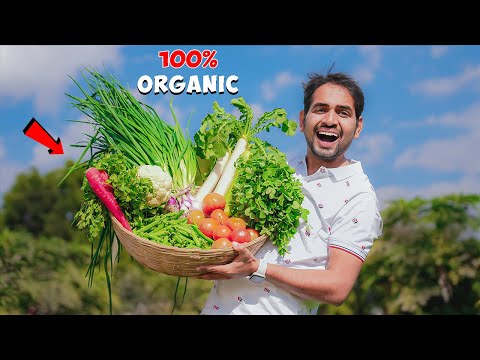Introduction
In recent years, the popularity of organic foods has skyrocketed, with many consumers believing that they are healthier and safer than conventionally produced items. However, amidst all the buzz surrounding organic produce, a growing debate has emerged questioning whether this trend is actually rooted in fact or driven by marketing tactics. This article aims to shed light on the true benefits and drawbacks of organic food, discussing its impact on human health, environmental sustainability, and overall value.
Understanding organic Food
organic food refers to agricultural products produced without synthetic chemicals such as fertilizers, pesticides, growth hormones, or genetically modified organisms (GMOs). Instead, organic farmers utilize natural methods to nurture soil fertility and prevent pest infestations. These methods include crop rotation, composting, biological pest control techniques, and the use of natural fertilizers.
Health Benefits
One primary reason consumers turn to organic foods is their perceived health benefits. While some studies have suggested that organic produce contains higher levels of certain nutrients like vitamin C and beneficial antioxidants, the differences are generally minimal and inconsistent. Nutritionally speaking, the disparity between conventional and organic produce may not pose a significant advantage to justify the higher price tags associated with organic products.
However, one key aspect where organics do excel is reducing pesticide residue exposure. Research indicates that consuming conventionally grown fruits and vegetables may lead to a buildup of pesticide residues in our bodies over time. Comparatively speaking, opting for organically grown products significantly lowers exposure to harmful chemicals commonly found in conventional produce.
Environmental Impact
Advocates for organic farming assert that it avoids environmental damage caused by conventional agriculture practices such as soil erosion due to excessive tilling or extensive chemical use. organic agricultural methods focus on preserving soil health through diverse cropping systems and reduced reliance on non-renewable resources.
Furthermore, proponents argue that organic farming promotes biodiversity by actively supporting a wide range of plant and animal species, as well as minimizing water pollution risk and protecting wildlife habitats. By embracing sustainable practices, organic farming aims to reduce the carbon footprint often associated with conventional industrial agriculture.
Trend or Scam?
Critics argue that the organic food industry has become merely a marketing ploy driven by clever branding and misinformation rather than genuine concern for consumer health or environmental sustainability. They point out that organic certifications vary across different countries, leading to questions about true standards and accountability.
The higher costs associated with organic food is another point critics frequently raise – many argue that the price difference between organic and conventional products is often too high for the average consumer to afford. This, in turn, can make access to healthy food limited for low-income individuals or families.
Conclusion
While organic foods may not necessarily possess significant nutritional benefits over conventionally produced alternatives, they do offer reduced exposure to potentially harmful pesticides. Furthermore, their environmentally-friendly farming practices can contribute positively to land conservation and biodiversity preservation. However, it would be unfair to label organic food as a trendy scam as it still offers valuable options for consumers who prioritize reduced pesticide exposure and sustainable agricultural practices. At the same time, policymakers need to address affordability concerns surrounding organic products to ensure access to healthy food options for all socioeconomic groups. Ultimately, the choice between organic and conventional should be based on individual preferences, priorities, and budgetary constraints – making informed decisions is key when navigating this ongoing debate over healthy food choices.





